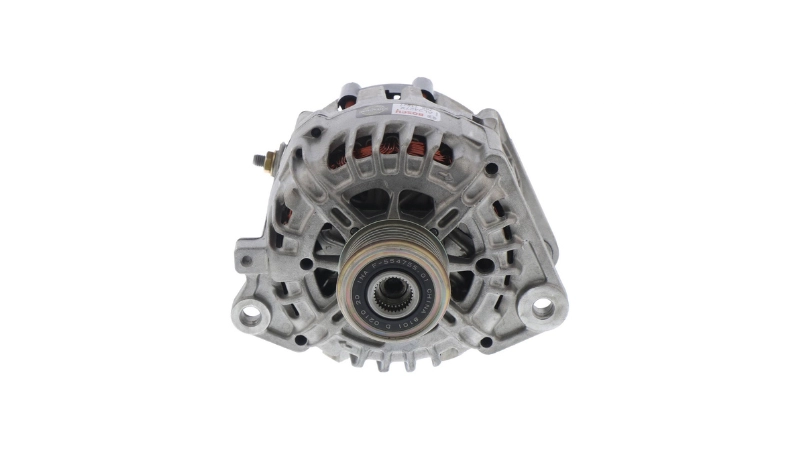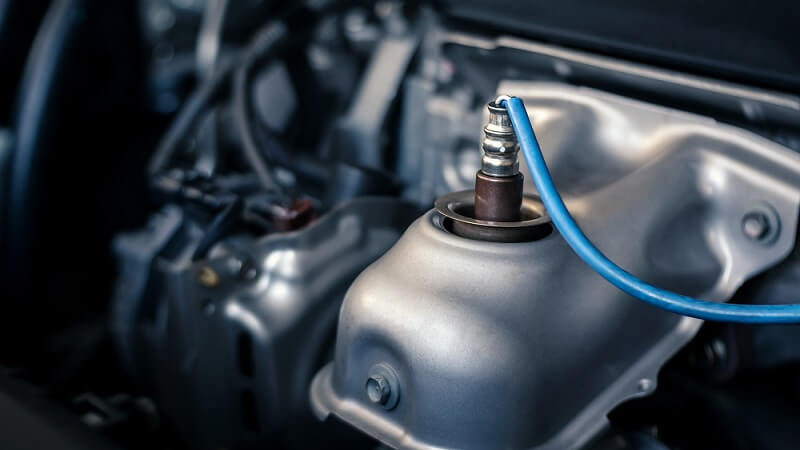Since its introduction in 2007, the Nissan Rogue, a popular compact crossover SUV, has been a favorite among drivers for its blend of style, comfort, and practicality. Known for its reliability and advanced features, the Nissan Rogue offers a smooth driving experience, making it an excellent choice for families and daily commuters alike. However, like any vehicle, the Nissan Rogue can encounter mechanical issues, one of the most common being alternator problems.
Imagine driving home when your Nissan Rogue’s dashboard lights flicker, power windows slow down, and the radio cuts off intermittently. As you pull into your driveway, the car stalls. These symptoms are familiar to many Nissan Rogue owners experiencing issues with their charging system. Such scenarios can be stressful, highlighting the need to promptly understand and address alternator problems.
In this article, we will cover the Nissan Rogue’s charging system and the alternator’s role. You’ll learn about common symptoms of a defective alternator. We’ll also discuss the causes of alternator malfunctions. Finally, we’ll provide advice on diagnosing and fixing alternator problems. By the end, you’ll be equipped to handle alternator issues, keeping your Nissan Rogue reliable and roadworthy.

What Is An Alternator and Its Function?
The Nissan Rogue’s alternator is a crucial component of its electrical system. It converts mechanical energy from the engine into electrical energy, which is essential for charging the battery and powering the vehicle’s electrical systems while driving.
The charging system in a Nissan Rogue comprises three main components: the alternator, the battery, and the voltage regulator. When the engine is started, the battery provides the initial power needed to crank it.
Once the engine runs, the alternator takes over, generating electricity to recharge the battery and supply power to the vehicle’s electrical components. The alternator contains a rotor and a stator; as the rotor spins inside the stator, it creates an alternating current (AC), which is then converted to direct current (DC) by diodes to power the car’s systems.
The voltage regulator plays a vital role in maintaining the alternator’s output. It ensures that the voltage levels remain within a specific range, preventing the battery from being overcharged or undercharged. If the voltage drops too low, the battery won’t charge properly, leading to electrical failures. Conversely, if the voltage is too high, it can damage the battery and other electrical components.
What Are The Symptoms of a Failing Alternator In A Nissan Rogue?
A failing alternator in a Nissan Rogue often presents several noticeable symptoms. Recognizing these early warning signs can help prevent further damage and avoid being stranded. Below, we detail common symptoms that indicate alternator issues, providing you with the knowledge to take timely action.
Battery Warning Lights
One of the first signs of a failing alternator is the appearance of the battery warning light on the dashboard. This light indicates that the charging system isn’t functioning correctly, signaling a potential problem with the charging system, including the alternator.
Difficulty Starting and Stalling
Difficulty starting the engine and frequent stalling can be linked to a failing alternator. When the Nissan Rogue’s alternator fails to charge the battery adequately, it may struggle to start or stall unexpectedly while driving as the battery drains.
Dead Battery
A dead battery is a common consequence of alternator failure. If the Nissan Rogue’s alternator cannot recharge its battery, it will eventually drain, leaving you unable to start your vehicle. Regularly checking the battery’s charge can help identify this issue early.
Dimming Headlights
Dimming or flickering headlights are another symptom of alternator issues. As the alternator struggles to supply adequate power, the headlights may appear less bright, especially noticeable during night driving.
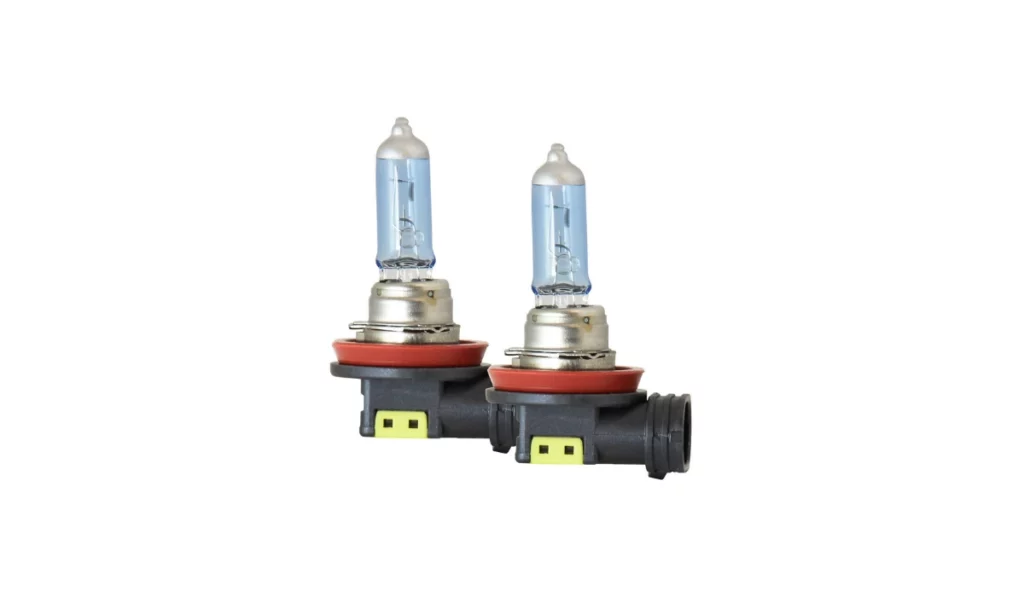
Electrical System Malfunctions
A failing alternator can cause various electrical system malfunctions, including erratic operation of power windows, door locks, sound system, and other electrically operated vehicle functions. These inconsistencies arise from the alternator’s inability to maintain a steady electrical supply.
Unusual Noises
Unusual noises, such as grinding, whining, and knocking, can indicate alternator problems. These noises may result from failing internal components within the Nissan Rogue’s alternator, signaling the need for inspection and possible replacement.
Causes of the Nissan Rogue Alternator Problems
Understanding the causes of alternator problems in your Nissan Rogue can help in preventive maintenance and timely repairs. Several factors contribute to alternator issues, ranging from natural wear and tear to specific component failures. Below, we have listed the common causes of Nissan Rogue’s alternator problems.
Aged and Worn-out Components
One of the primary causes of alternator problems is age and general wear and tear. Over time, the Nissan Rogue’s alternator internal components deteriorate, reducing its efficiency and leading to eventual failure.

Additionally, worn-out components such as the voltage regulator and alternator pulley can exacerbate these issues. When these components wear out, the alternator’s performance is compromised, decreasing overall vehicle reliability and increasing the likelihood of electrical failures.
Electrical Issues
Electrical issues, including faulty wiring and cable connections and blown fuses, can disrupt the function of Nissan Rogue’s alternator. Poor connections or damaged wires prevent the alternator from properly charging the battery, leading to various electrical malfunctions.
Serpentine Belt Issue
The serpentine belt, which drives the alternator, can also be a source of problems. If the belt is worn, not seated correctly, or improperly tensioned, it can slip or break, preventing the alternator from generating power and causing the charging system to fail.
Exclusive Discounts on Genuine Nissan Parts
Explore Newparts.com for a vast selection of genuine Nissan and OEM parts at unbeatable prices. We aim to support Nissan enthusiasts with high-quality auto parts at reduced costs. Our range includes everything your Nissan needs, meeting all OEM standards.
From essential transmission components to routine maintenance items, we’ve got you covered. Choosing Newparts.com means enjoying substantial savings without sacrificing quality. With our large inventory, user-friendly site, and dedicated customer service, you’ll always find what you need for maintenance and upgrades.
Diagnosing Nissan Rogue Alternator Issues
Diagnosing issues on your Nissan Rogue’s alternator involves a series of systematic checks to pinpoint the problem accurately. Early diagnosis can save you from the hassle and costly repairs. Below, we outline the key diagnostic steps to identify alternator problems effectively.
Scan for Trouble Codes
One of the first steps in diagnosing Nissan Rogue’s alternator issues is scanning for trouble codes using an OBD-II scanner. Look for Diagnostic Trouble Codes (DTC) related to the alternator, which can provide specific information about the malfunction and help direct further testing.
Voltage Testing
Voltage testing is crucial for assessing the health of your Nissan Rogue’s alternator and battery. Check the battery’s open circuit voltage (no lower than 12V) when the engine is off. Then, measure the Nissan Rogue’s alternator output voltage, both with and without electrical loads (between 13V and 14V).
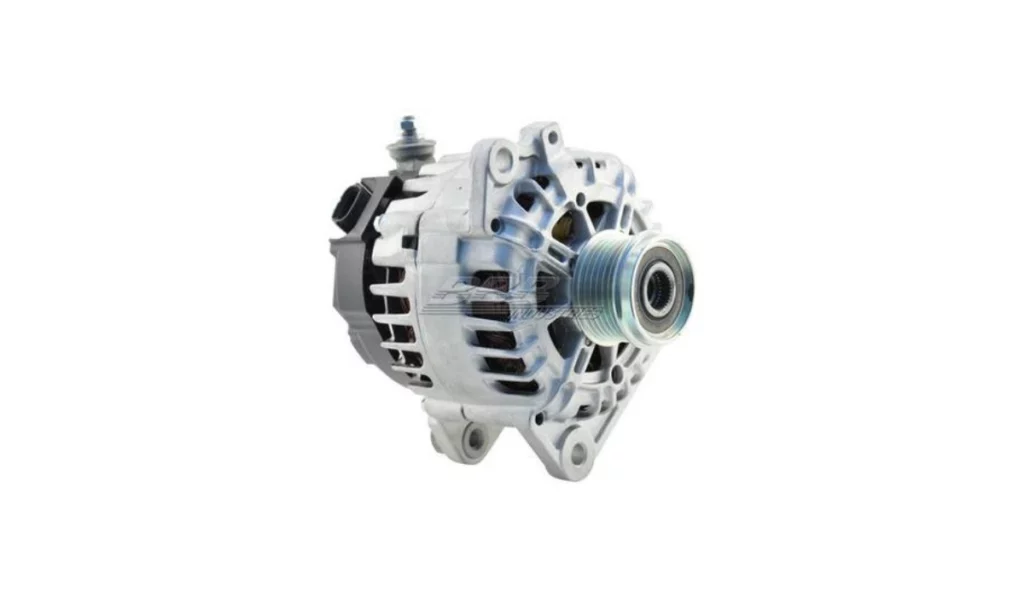
This dual testing approach is necessary because many modern vehicles, including the Nissan Rogue, utilize a “smart charging” system. This system uses a battery sensor to inform the control unit whether the battery is depleted or has sufficient charge.
The Nissan Rogue’s alternator’s output will adjust depending on the sensor’s feedback. This variability can lead to misleading results if only a single condition is tested. By testing under both loaded and unloaded conditions, you can obtain a more accurate assessment of the performance of the Nissan Rogue’s alternator and the battery’s condition.
Alternator Output Test
Load testing involves checking the Nissan Rogue’s alternator ampere output while the engine runs under different conditions. This test measures the alternator’s ability to supply sufficient current under various load conditions, ensuring it can meet the vehicle’s electrical demands.
While voltage testing confirms that the Nissan Rogue’s alternator is producing the correct voltage, it is the current (amperage) that actually charges the battery and powers the vehicle’s electrical systems. Therefore, checking the ampere output is crucial to ensure the Nissan Rogue’s alternator can supply enough current to charge the battery effectively and support all electrical components.
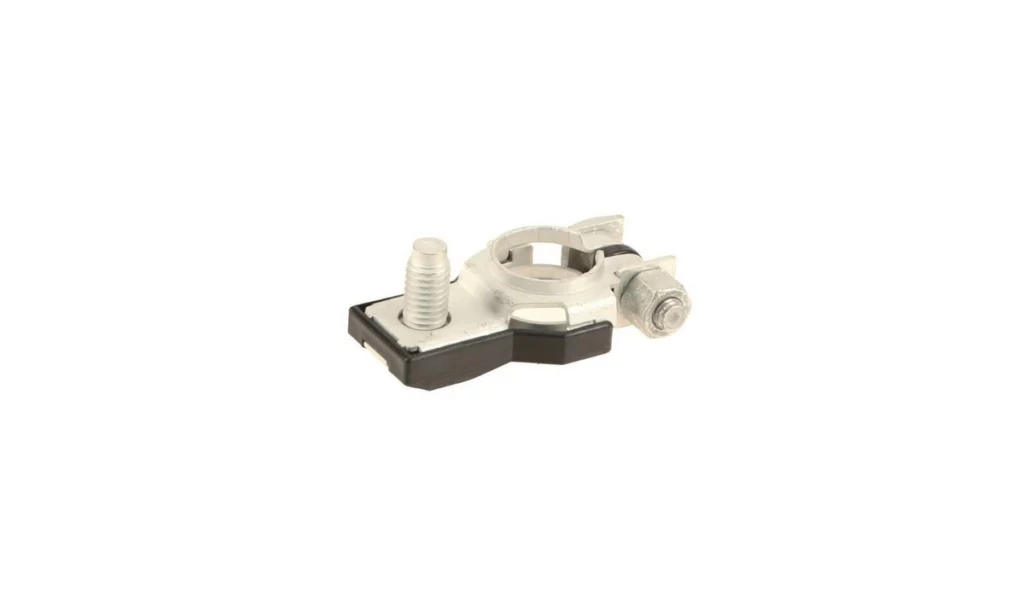
Visual Inspection
A visual inspection is essential for identifying physical issues. Check the Nissan Rogue’s alternator’s one-way clutch and inspect all cables and wiring connections for signs of looseness, corrosion, or wear. Ensuring all components are intact is vital for proper alternator function.
Listen for Unusual Noises
Unusual noises, such as grinding, whining, and knocking from the Nissan Rogue’s alternator, can indicate pulley or internal alternator issues. These noises often signal that internal components like bearings or pulleys are failing and need replacement.
Belt Tension Check
Checking the belt and tensioner condition is essential, as a worn, not seated correctly, or improperly tensioned serpentine belt can prevent the Nissan Rogue’s alternator from working correctly. Ensure the belt is in good condition and the tensioner maintains proper tension.
How Much Does It Typically Cost to Replace an Alternator in a Nissan Rogue?
Replacing the Nissan Rogue’s alternator typically costs between $300 and $1200, including parts and labor. The exact cost can vary based on the mechanic’s rates and the quality of the replacement parts. Getting quotes from multiple sources is advisable to ensure you receive a fair price for the service.
Solutions and Fixes — DIY Nissan Rogue Alternator Replacement
Replacing the Nissan Rogue’s alternator can be manageable if you have the right tools, follow safety practices, and have a repair manual. Understanding the process and knowing how to address related components can help you successfully complete the replacement.
However, DIY repairs should be undertaken at your own risk, as improper handling can lead to further issues. Below, we provide a comprehensive guide to ensure a smooth and safe alternator replacement on your Nissan Rogue.
Safety Practices
Safety is paramount when working on your vehicle. Always disconnect the battery before starting work to prevent electrical shocks and ensure the engine is cold to the touch. Use proper protective gear, including gloves and safety glasses, and ensure the vehicle is on a stable surface to avoid accidents.
Tools Required
To replace the Nissan Rogue’s alternator, you will need the following tools:
- Gloves
- Safety goggles
- Hydraulic jack
- Jack stands
- Lug wrench
- Ratchet and socket set
- Spanner set
- Screwdriver set
- Pliers set
- Torque wrench
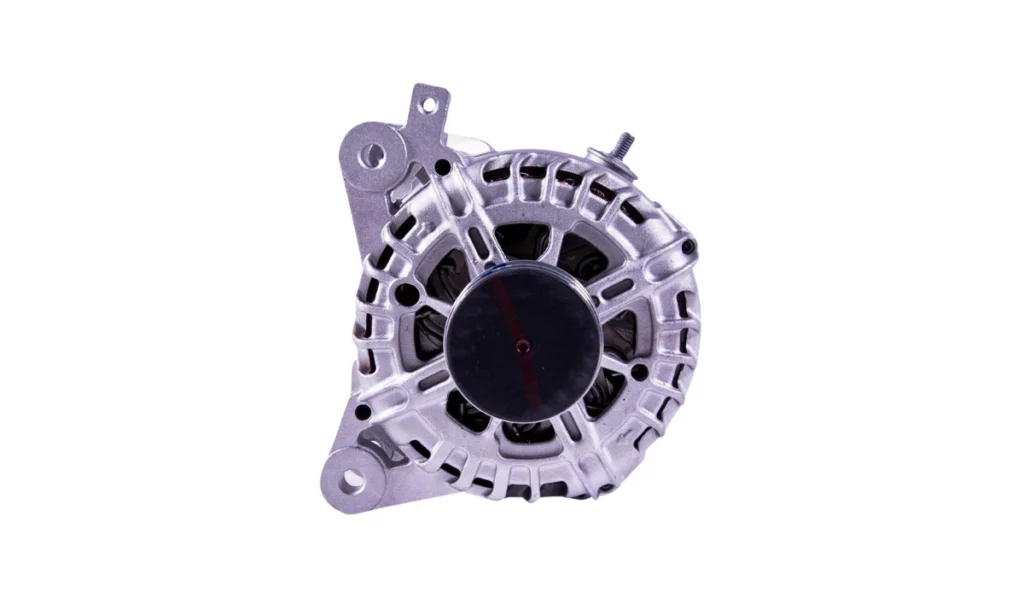
Step-By-Step Guide on Nissan Rogue Alternator Replacement
Disconnect the Battery — First, disconnect the negative terminal to prevent short circuits.
Raise the Vehicle — Use a hydraulic jack to lift the front right side of the vehicle and secure it with jack stands. Ensure the car is on a stable surface with wheel chocks at the rear wheels and the jack stands are properly placed.
Remove the Front Right Wheel — Use a lug wrench to remove the wheel nuts and remove the wheel. Keep the wheel nuts in a safe place to avoid losing them.
Remove the Wheel Housing Liner — Remove the fasteners and clips holding the wheel housing liner and take them out to gain access to the serpentine belt. Keep the fasteners and clips organized for reinstallation.
Remove the Serpentine Belt — Use a ratchet and socket to release the tensioner, then lock it with a small metal rod (an appropriately sized Allen key or a drill bit works fine). Afterward, slide the belt off the Nissan Rogue’s alternator pulley. To make reinstallation easier, take a photo of the belt routing before removing it.

Disconnect the Electrical Connections — Remove the electrical connections from the back of the alternator. These include a bolted main power cable and a smaller signal wire.
Remove the Mounting Bolts — Undo the bolt holding a wiring harness bracket to the Nissan Rogue’s alternator and set the bracket on the side. Then remove the bolts securing the alternator to the engine. Support the Nissan Rogue’s alternator with one hand while removing the final bolt to prevent it from falling.
Take Out the Old Alternator — Carefully lift the old alternator from the engine bay. Check for any signs of oil or coolant leaks in the area, as these can damage the new alternator.
Install the New Alternator — Position the new alternator in place and start threading the mounting bolts by hand to avoid cross-threading. Tighten the bolts to the specified torque.
Reconnect the Electrical Connections — Reattach the power cable and signal wire to the new alternator. Ensure all connections are secure and tightened to specified torque to avoid electrical issues.
Reinstall the Serpentine Belt — Route the serpentine belt around the pulleys. Release the tension on the belt tensioner and remove the metal rod that was used to lock the tensioner. Double-check the belt alignment and fitment to prevent it from slipping off while driving.
Reinstall the Wheel Housing Liner and Wheel — Put the wheel housing liner back in place, secure it with the fasteners and clips, then reinstall the wheel and tighten the lug nuts. Lower the vehicle safely before fully tightening the lug nuts.
Reconnect the Battery — Reconnect the negative terminal last to complete the electrical circuit. Start the engine and monitor the voltage to ensure the new alternator is charging correctly.
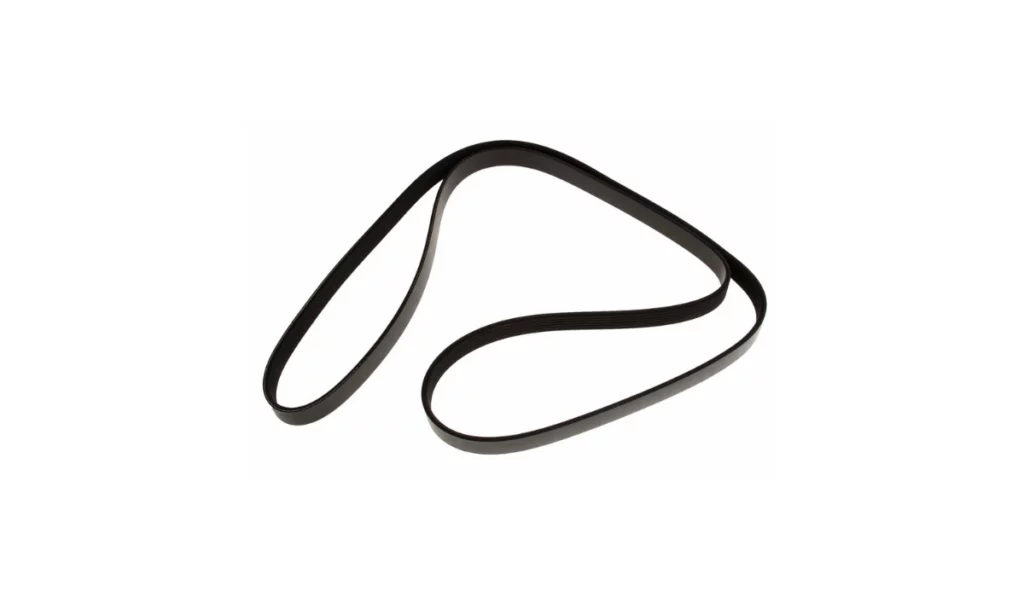
How Often Should I Replace the Alternator in My Nissan Rogue?
There is no specific service interval for replacing the alternator in your Nissan Rogue; you should replace it when it fails. Typically, the Nissan Rogue’s alternator lasts between 80,000 to 150,000 miles or about 5 to 7 years. However, this can vary based on driving conditions and maintenance practices. Regular inspections and timely attention to signs of alternator failure can help you maintain your vehicle’s reliability and avoid unexpected breakdowns.
Maintenance Tips
Proper maintenance of your Nissan Rogue’s alternator can extend its lifespan and prevent unexpected failures. Regular inspections and following best practices can help ensure your vehicle’s electrical system remains reliable. Below are essential maintenance tips to keep your Nissan Rogue’s alternator and related components in top condition.
Regular Inspections
Regularly inspect the Nissan Rogue’s alternator and serpentine belt for signs of wear and tear. Look for frayed belts, cracks, or unusual noises from the Nissan Rogue’s alternator area. Early detection of these issues can prevent more significant problems and avoid costly repairs.
Keep the Electrical System Clean
Ensure all electrical connections and components are clean and free from corrosion. Dirty or corroded connections can impede the Nissan Rogue’s alternator’s performance and lead to electrical failures. Use a wire brush and electrical contact cleaner to maintain clean connections and ensure optimal power flow.

Check Battery Health
Regularly test the battery to ensure it holds a charge and functions correctly. A healthy battery reduces the strain on the Nissan Rogue’s alternator and ensures reliable starting. Use a multimeter to check the battery voltage, which should read around 12.6 volts when fully charged.
Follow Manufacturer Recommendations
Adhering to the manufacturer’s recommended service intervals for your Nissan Rogue is crucial. Routine maintenance checks can help identify potential alternator issues early and keep your vehicle running smoothly. Refer to the owner’s manual for specific maintenance schedules and guidelines.
Use Quality Replacement Parts
Opt for genuine Nissan, OEM parts, or high-quality aftermarket parts when replacing the Nissan Rogue’s alternator or any related components. These parts ensure compatibility and longevity, reducing the likelihood of premature failure and additional issues. Avoid cheap, low-quality parts that can fail prematurely and cause further problems.
Get Quality Alternator Parts from Newparts.com
When it comes to replacing your Nissan Rogue’s alternator, quality matters. At Newparts.com, we offer a wide selection of high-quality alternators and related components to ensure your vehicle runs smoothly and reliably.
Our parts meet and exceed OEM standards, providing peace of mind when using the best products available. Plus, with our competitive pricing and fast shipping, you can get the parts you need quickly and affordably.
Don’t let a failing alternator leave you stranded. Visit Newparts.com today to find the perfect alternator for your Nissan Rogue and keep your vehicle in top condition. Shop now and experience the difference quality parts can make!


